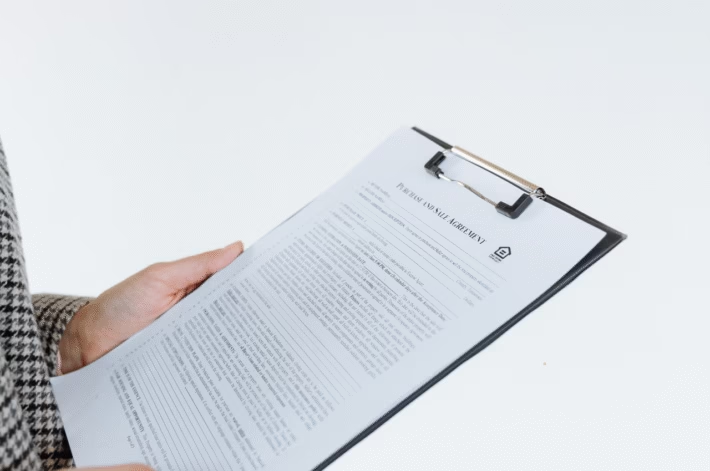The Silent Power of “Force Majeure” Clauses in a Post-Pandemic World

Introduction
The COVID-19 pandemic brought the force majeure clause into the spotlight like never before. This once-overlooked boilerplate provision became a lifeline for businesses navigating unprecedented disruptions. But what exactly is a force majeure clause, and how has its role evolved in a post-pandemic world? In this article, we’ll break down the key concepts, analyze real-world cases, and provide practical strategies for drafting and negotiating these clauses in a way that protects your interests.
What is a Force Majeure Clause?
A force majeure clause is a contractual provision that excuses one or both parties from performing their obligations when certain circumstances beyond their control arise, making performance inadvisable, commercially impracticable, illegal, or impossible. These circumstances, often called “force majeure events,” can include natural disasters, wars, strikes, and, as we’ve seen, pandemics.
A typical force majeure clause might look like this:
“Neither party shall be liable for any failure or delay in performing its obligations under this Agreement if such failure or delay is caused by events beyond its reasonable control, including but not limited to acts of God, natural disasters, war, terrorism, pandemics, or government actions.”
The Pandemic Effect: How COVID-19 Changed Everything
Before the pandemic, force majeure clauses were often treated as an afterthought. Many contracts included generic language that didn’t specifically address health crises or global disruptions. When COVID-19 hit, businesses scrambled to determine whether the pandemic qualified as a force majeure event under their contracts. This led to a wave of litigation and a renewed focus on the importance of clear, comprehensive force majeure clauses.
Key Legal Principles
- Interpretation of Force Majeure Clauses
Courts interpret force majeure clauses strictly. If a specific event (like a pandemic) is not explicitly listed, parties may struggle to prove that it qualifies as a force majeure event. For example, in In re: Hitz Restaurant Group (2020), a U.S. bankruptcy court ruled that COVID-19 did not excuse a tenant’s obligation to pay rent because the lease’s force majeure clause did not include pandemics or government shutdowns. - Causation and Foreseeability
To invoke a force majeure clause, the event must directly cause the inability to perform. Additionally, some jurisdictions require that the event was unforeseeable at the time the contract was signed. For example, after the pandemic began, courts were less likely to accept COVID-19 as an unforeseeable event in contracts signed after March 2020. - Mitigation Obligations
Even if a force majeure clause applies, parties are often required to take reasonable steps to mitigate the impact of the event. Failure to do so can limit the protection offered by the clause.
Case Studies: Lessons from the Trenches
- Case Study 1: The Wedding That Wasn’t
In Foresight Events Ltd v HMRC (2020), a UK court ruled that a wedding planning company could not rely on its force majeure clause to avoid refunding clients for weddings canceled due to COVID-19. The clause did not specifically mention pandemics or government restrictions, and the court found that the company could have mitigated its losses by rescheduling events.Lesson: Explicitly list pandemics and government actions in your force majeure clause. - Case Study 2: The Supplier Who Couldn’t Deliver
In Pathway Partners v. Kimball Hill Homes (2008), a supplier invoked a force majeure clause after a hurricane disrupted its operations. The court ruled in the supplier’s favor because the clause specifically included “natural disasters” and the supplier had taken steps to mitigate the impact.Lesson: Clear language and mitigation efforts are key to successfully invoking a force majeure clause. - Case Study 3: The Airline That Grounded Its Obligations
During the pandemic, many airlines invoked force majeure clauses to avoid refunding passengers for canceled flights. However, regulators in several jurisdictions ruled that airlines were still obligated to provide refunds, as the pandemic did not make refunds impossible—only inconvenient.Lesson: Force majeure clauses do not excuse all obligations—only those that are truly impossible or commercially impracticable.
Practical Strategies for Drafting and Negotiating Force Majeure Clauses
- Be Specific About Covered Events
Don’t rely on generic language. Explicitly list the events that qualify as force majeure, including pandemics, government actions, and supply chain disruptions. For example:“Force majeure events include but are not limited to acts of God, natural disasters, pandemics, epidemics, government actions, war, terrorism, strikes, and supply chain disruptions.” - Define the Impact Required
Specify what level of impact is required to trigger the clause. For example:“A force majeure event must render performance impossible, illegal, or commercially impracticable.” - Include Mitigation Requirements
Require parties to take reasonable steps to mitigate the impact of the event. For example:“The affected party must use commercially reasonable efforts to mitigate the impact of the force majeure event and resume performance as soon as practicable.” - Address Termination Rights
Include provisions allowing parties to terminate the contract if the force majeure event persists for a specified period. For example:“If the force majeure event continues for more than 90 days, either party may terminate this Agreement upon written notice.” - Consider Industry-Specific Risks
Tailor the clause to address risks specific to your industry. For example, a construction contract might include delays caused by material shortages, while a tech contract might address cyberattacks. - Review and Update Regularly
Force majeure clauses should be reviewed and updated regularly to reflect changing risks and legal developments. For example, after COVID-19, many businesses added explicit references to pandemics and government shutdowns.
Conclusion
The pandemic has underscored the importance of well-drafted force majeure clauses. These provisions are no longer just boilerplate—they are critical tools for managing risk in an unpredictable world. By learning from case studies, understanding legal principles, and following practical drafting tips, you can create force majeure clauses that provide robust protection for your business. Always consult legal professionals to ensure your contracts are tailored to your specific needs and jurisdiction.

